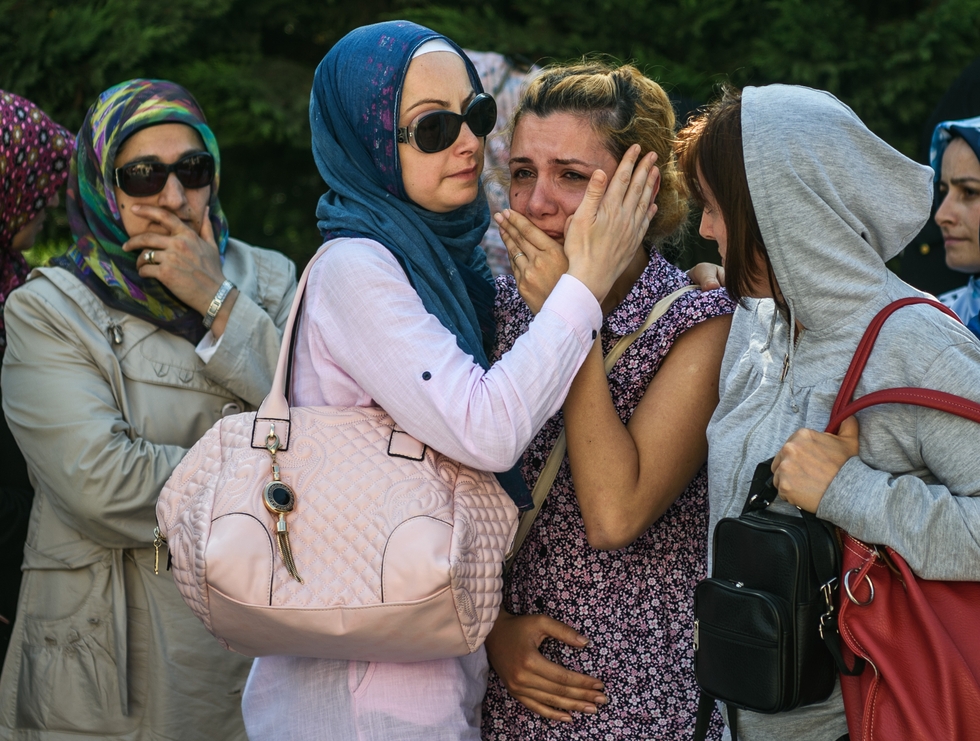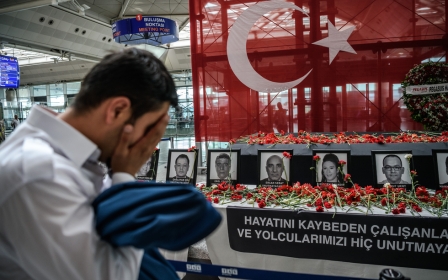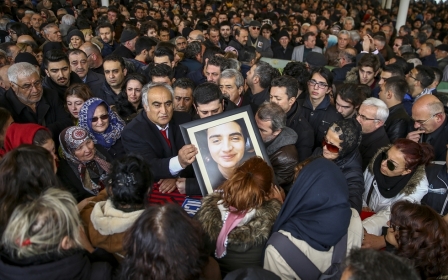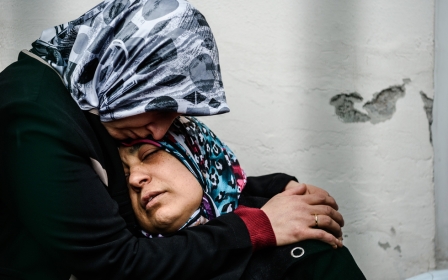Terrorism against Turkey is not new. Western hypocrisy is even older

Countries around Turkey are going through difficult times. What is more, the three regions surrounding Turkey are all going through crises at levels that are destabilising regional ecosystems and producing new regional disorders.
Turkey, which has managed to positively differentiate itself from the regional zeitgeist since 2002, is being ever more affected by this violent political turmoil as tensions in the Middle East, Caucases and eastern Europe turn into occupations, annexation and clashes.
These developments have already locked crises and heightening tensions into a vicious cycle. Each of these regions in turmoil has created a centrifugal force, pushing crisis out to its neighbours and systematically exporting them. It seems unlikely that these three centrifugal forces will disappear in the short term.
The first of these is the situation of a century-old order of Mesopotamia. It collapsed due to enormous political change caused by the Arab uprising. The consequences affected Turkey directly and will continue to do so in the future.
The success story of the 20th century - or the order created after World War II embodied in the European Union, but also including the Balkans - is also trapped in a vicious cycle both politically and economically. Political apathy surrounding Europe intensifies every other day. These effects have direct consequences for Turkey.
Similarly, ever since the Cold War, the situation in the Caucasus has been politically frozen and deeply damaging. As the active part of the crisis, uncontrolled Russian unilateral intervention is unable to produce positive or negative solutions for itself or for the region, and as a result, it merely increases the problems. Yet, Turkey is still a stable country that has the capacity to manage crises despite all the problems arising from these three geopolitical systems.
One of the most important issues that these three centrifugal forces have directly or indirectly resulted in is terrorism. The earthquake caused by the invasion of Iraq, the increase of Islamophobia and rise of rightist populism in Europe, and the vicious cycle of war-invasion-annexation in the Caucasus have all disrupted the war on terror.
Turkey is one of the few countries that have managed to protect its political stability and economic welfare despite a problematic geographical location, global political and economic crises.
In addition, Turkey is not a new target of terrorism. The current acts of terror experienced by Turkey are directly aimed at disrupting everyday life to limit the country’s capacity to manage the crisis.
The terrorism that Turkey faces is not only a primitive wave of violencebut also a cheap tool of proxy war against Turkey with the hope that one day the country will give up its geopolitical positioning. Yet Turkey’s political and social pain threshold against these synchronised acts of terror is far stronger than these groups expected.
In order to understand this, one can simply look at the number of victims during the last century that died as a result of terrorism. Thousands of people have lost their lives.
It does not seem possible for the Kurdistan Workers Party (PKK) and the so-called Islamic State (IS) to force Turkey to act in their interests through acts of terror such as suicide bombings, as these methods have not worked in the past either.
Western double standards
Turkey is not only faced with the difficulty of fighting terrorism, but also the West’s “double standards on terrorism”.
A simple comparison of the reactions to acts of terror in Turkey with those to acts of terror in Western capitals is sufficient to understand that this is an issue. Seeing pictures of the suicide bombers who caused the death of many people near the Turkish parliament being carried aloft in the streets of London and outside the EU parliament in Brussels is beneath contempt and upsetting enough in itself.
This situation is so serious that when a delegation from a country in Northern Europe came to visit me, they showed me a picture of a group protesting against Turkey outside their parliament and asked me what they should say to the people who were protesting for "freedom of speech" in Turkey.
All I could say in reply was “I don’t know what you could say to them, but let me tell you that the pictures they are holding up are of the suicide bomber that caused the deaths of 29 people a couple of hundred meters away from this room.” The atmosphere went numb.
We cannot get to the core of the issue of terrorism or sincerely fight against it unless we stop the “good terrorist, bad terrorist” approach and abandon it as a power-seeking method.
In that sense, those who allowed IS to emerge in Iraq in the midst of a bloody wave of sectarianism, despite Turkey’s warnings, also allowed IS to come to power in some parts of Syria by not intervening to tackle the root of the problem. This approach, reducing the Syrian issue first to Al-Qaeda and later on to IS, paved the way for IS to become a global problem in the same way as al-Qaeda.
The issue will develop further if IS continues to be used as cheap ammunition in power maximisation and proxy wars.
Many countries are using war against IS as a camouflage for their proxy war in Syria. But when Turkey acts against IS she means war against IS. That's why Turkey is the main target of IS. Because of this, Turkey is paying a price, in addition to the burden of the refugee crisis.
In order to prevent this price becoming even heavier for Turkey and the world, sincere and serious steps must be taken to discover the roots of terrorism. The period ahead will show how much sincerity and seriousness there is on this issue.
- Taha Ozhan is a member of Turkish Parliament and chairman of Foreign Affairs Committee. He is an academic and writer. Ozhan holds a PhD in Politics and International Relations. He frequently comments and writes for international media. His latest book is Turkey and the Crisis of the Sykes-Picot Order (2015). You can follow him on Twitter @TahaOzhan
The views expressed in this article belong to the author and do not necessarily reflect the editorial policy of Middle East Eye.
Photo: Relatives of suicide attack victim mourn on June 29, 2016 in Istanbul during his funeral a day after a suicide bombing and gun attack targeted Istanbul's Ataturk airport, killing 41 people (AFP).
New MEE newsletter: Jerusalem Dispatch
Sign up to get the latest insights and analysis on Israel-Palestine, alongside Turkey Unpacked and other MEE newsletters
Middle East Eye delivers independent and unrivalled coverage and analysis of the Middle East, North Africa and beyond. To learn more about republishing this content and the associated fees, please fill out this form. More about MEE can be found here.





